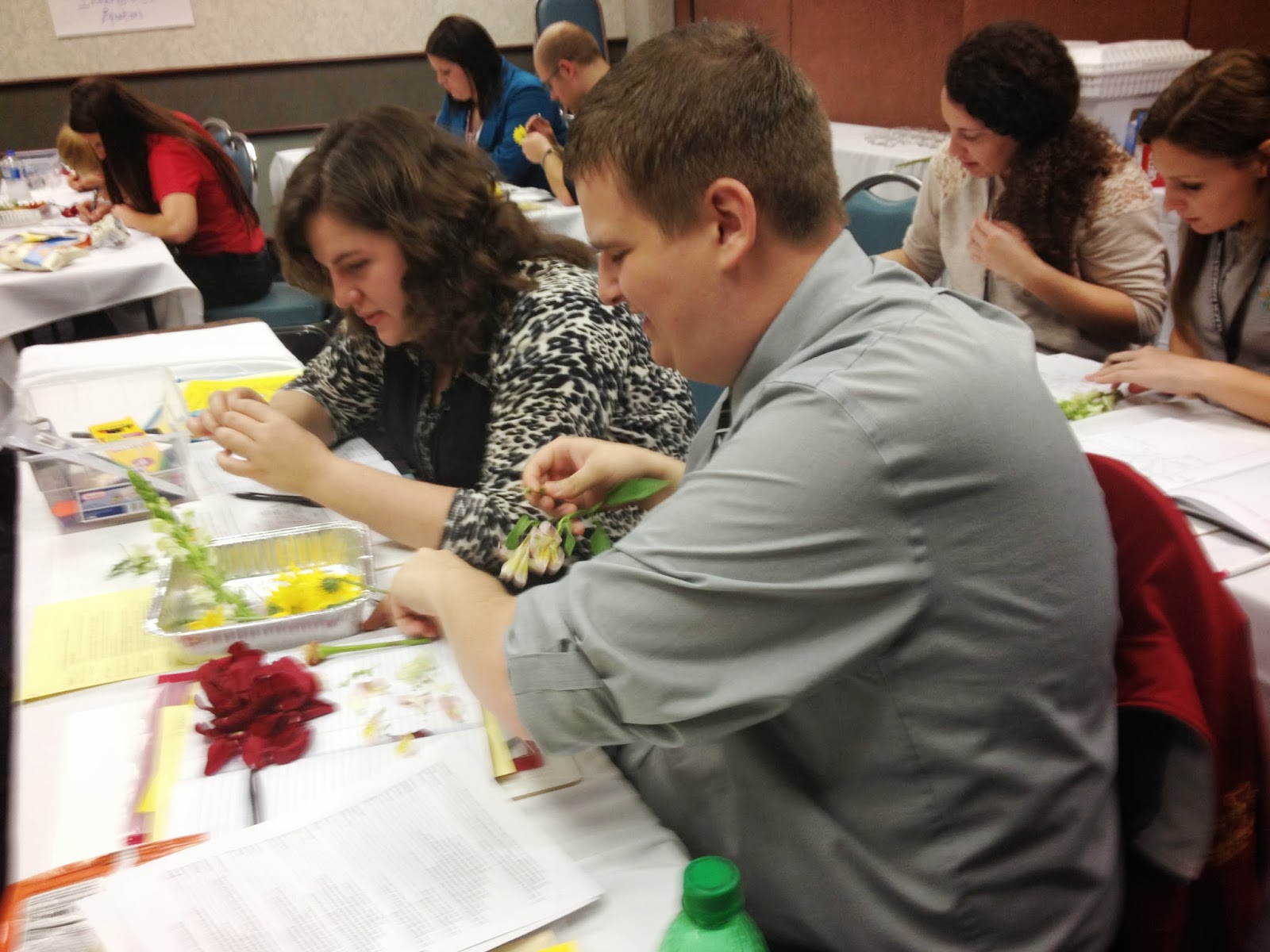Recently during the 2013 National FFA Convention, sixteen students
from across the nation chose to develop themselves professionally with the help of Dupont and NAAE. These sixteen students from
fourteen universities applied and were accepted into the National Agriscience
Preservice Teacher Program, created especially for students that were currently
student teaching or would be teaching in the upcoming spring or fall.
Two students from Penn State were selected, Jessie Ross (@JessieLeeRoss) and
myself (@JRose_Case). To be selected into the program, we had to answer a variety of short answer
questions, submit a resume, and have a letter of recommendation. We were
honored to have been selected for the opportunity.
The preservice program was funded through Dupont Office of
Education and facilitated by the National Association of Agricultural Educators coordinated through Alissa Smith.
The teachers leaders of the program taught the program by example, going through
the different areas and subjects in which inquiry based learning could occur. We
learned how to keep and grade a notebook as we recorded different lab
activities such as, how to write hypotheses, find out if double stuffed oreos
are really double stuffed, photosynthesis and respiration, grizzly greenhouse
murders, and cattle calls.
 |
| Jessie Ross trying to identify flowers to find the "killer". |
Inquiry based instruction is having students do mental work
rather than the teacher unloading information in front of the students, and it
also helps them to think critically. It is not a passive form of teaching and
reengages students into learning. Instructional strategies that we learned included having the students write reflections in their notebooks in a different color; for example, they can write definitions in a different color.
There were also partner highlighting where two students read the same article and
had different color high lighters. When they are done reading and highlighting, they discussed what they highlighted and their partner will highlighted what the
other person highlighted on their own paper. This got them engaged in a
discussion of what they thought was important and why. It also makes them not
miss anything important because they will have two people on one paper.
 |
| Jeanne Case on left, working together to discover the photosynthesis cycle |
Jessie reflected on the experience and said, "I 'm really glad that I had this opportunity to take part in the Preservice Program on inquiry based instruction, learning how to teach students both material and more importantly how to think on there own. Along with the instruction, the instructors also shared great classroom management tips to still keep the room under control without limiting your students, as well as grading tips so that the lessons still have value to the students....I would have never thought that students would work so hard to get their paper stamped until I saw fifteen college students and myself's in action. It truly was a great experience and would really encourage next years student teachers to fill out the application and take part."
Besides from learning a lot about inquiry based instruction,
we also got to meet and work with our peers from across the country. A girl
that I talked to was already student teaching in South Dakota and had a job
lined up for January, which I thought was really impressive for a fast turnover
rate.
It was great to learn more about another form of
instruction, especially before student teaching where mistakes are allowed to
happen and you can really figure out what works and doesn't work for you. Also, classroom management is necessary to learn, because it is necessary everywhere. Lastly, it is important to participate in professional
development events, because as people always say…. It is important to not
invent the wheel twice!
To learn more about starting on the path to having a career that makes a positive impact on the lives of students across the globe by becoming an agricultural educator, please contact the agricultural teacher education program at teachag@psu.edu. Follow us on Twitter at TeachAgPSU, on Facebook, or on our blog!


No comments:
Post a Comment
Thanks for Commenting!
We will moderate and approve as appropriate!